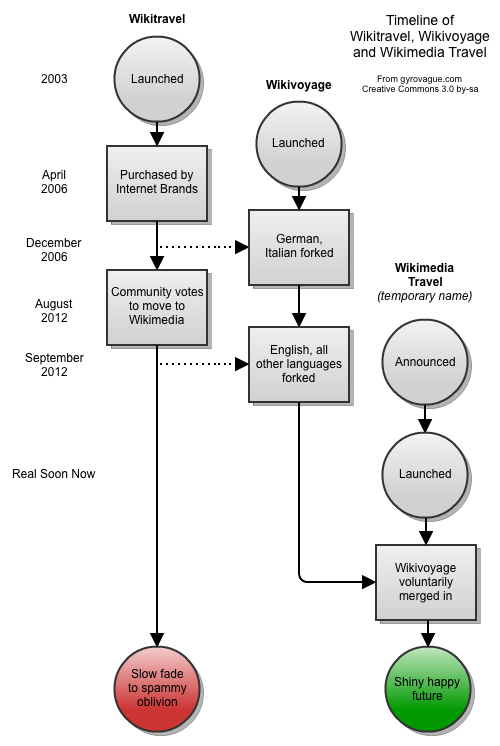I have an inchoate (and, of course, all-encompassing) theory of collaboration. I think in terms of someone desiring an improvement to the world. They may form a conspiracy to achieve the given end. They may set up as a tax-deductible charity. Or just a non-profit corporation. Or a for-profit corporation. Or a trade association. Or a political party. Or a rock band. Or a poetry collective. Or a religion. Or a cult. Or no defined body at all, just a bunch of people.
Most such groups are incompetent and fail. This is normal.
In the case of charities, the failures tend to linger arse-disabled, shuddering along, sputtering out occasional results, burning out good people and not dying. The organisation can be a net negative for its actual goals, as it can appear to have staked out its area.
It can take years before a not-quite-competent charity finally works out how to transition from a board-run/individual-run tax-deductible band of conspirators to being a professional staff-run organisation tuned to doing the particular thing it does. The changes always seem simple and obvious in hindsight and everyone involved feels stupid at having taken years to achieve the retrospectively obvious.
I have seen this pattern close-up in the Wikimedia Foundation, Wikimedia UK (the first attempt at which died before achieving adequacy) and the West Australian Music Industry Association, and I have considerable anecdote from others. (I ran the ideas in this post past Sandra Ordonez, WMF’s first communications director, and James Forrester earlier this week. Both got that post-charity stress disorder look in their eyes.) All of these professionalised and are going great now, but it was not a sure thing.
(I have sufficient experience with lame-duck charities that I am at the stage of my life where small charities ask me onto their board. I say “no,” because my experience is in failing. If only more people realised this sort of thing.)
The example that provoked me to write this post is the Singularity Institute, an artificial intelligence research organisation (that also runs LessWrong) full of computer scientists and philosophers. Since it’s made of humans, even startlingly intelligent humans, it spent about ten years failing to get much done in a manner just like lots of other charities. It was founded in 2001 and only got its shit together in about the last year, having been kept alive in the meantime only by rich fans like Peter Thiel. It got a detailed and cutting assessment from Holden Karnovsky of charity directory GiveWell, who considered that at this stage, “withholding funds from SI is likely better for its mission than donating to it.” Ouch.
Luke Muehlhauser, the Singularity Institute’s Executive Director, described his perspective on events in response to the founder, Eliezer Yudkowsky:
I had significant ambiguity aversion about the prospect of being made Executive Director, but as it turned out, the solution to almost every problem X has been (1) read what the experts say about how to solve X, (2) consult with people who care about your mission and have solved X before, and (3) do what they say.
When I was made Executive Director and phoned our Advisors, most of them said “Oh, how nice to hear from you! Nobody from SingInst has ever asked me for advice before!”
That is the kind of thing that makes me want to say that SingInst has “tested every method except the method of trying.”
Donor database, strategic plan, staff worklogs, bringing staff together, expenses tracking, funds monitoring, basic management, best-practices accounting/bookkeeping… these are all literally from the Nonprofits for Dummies book.
Everyone who’s ever interacted with a sub-competent charity will know that feeling.
Luke’s recommendation, Nonprofit Kit For Dummies (Wiley 978-0-470-52975-1), is precisely the book all the examples I’ve been involved in desperately needed to have someone throw at them before they even formed an organisation to do whatever it is they wanted to achieve. Even those not in the US — the legal details are US-centric (a UK or Australian version would be nice), but the framework to help you actually get your shit together is the key takeaway.
- Maybe you have an idea that will help solve a problem in your community, and you believe that starting a nonprofit organization is the best way to put your idea into action.
- Maybe you serve on a board of directors and wonder what you’re supposed to be doing. [Oh dear Lord, yes.]
- Maybe you work for a nonprofit and need some ideas about fundraising, managing your organization, or working with your board of directors.
- Or maybe you’re simply curious about the nonprofit sector and want to find out more about it.
I wish I’d had this book twenty-five years ago, when I first needed it.
(The “For Dummies” series is reliable introductory-level material on pretty much every subject. It’s like one-day courses in everything.)
Of course, a charity is only a tool to get something done. Positing a thing called “the charity sector” over here and a pool of potential donations over here and a not very differentiated flow of money from one to the other is an economically accurate and useful model, but not necessarily the best way to solve an actual problem the donor is interested in solving. But that, like the iron law of institutions, is a problem of success. Think in terms of there being a group of people in a conspiracy to achieve a given end — going to all the faff of setting up as a charity may not be the right approach.
But even if you’re just at the stage of a couple of people who think something is a good idea, and even if you’re not in the US, Nonprofit Kit for Dummies is a thoroughly worthwhile read.

